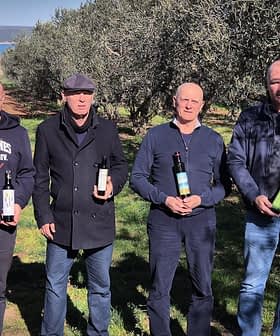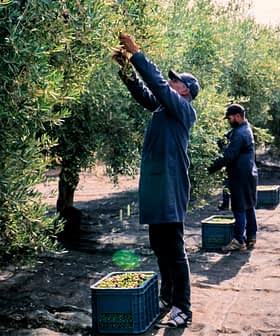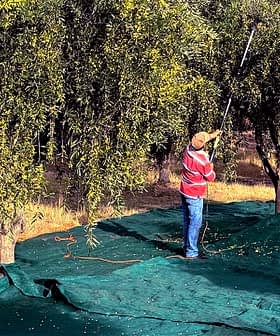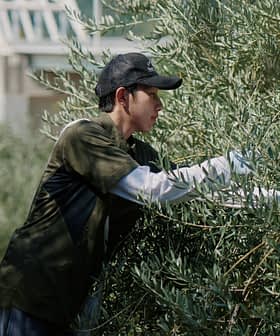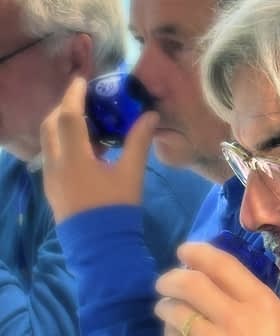Five-Year Project Delivers Infrastructure and Training for Algerian Olive Farmers
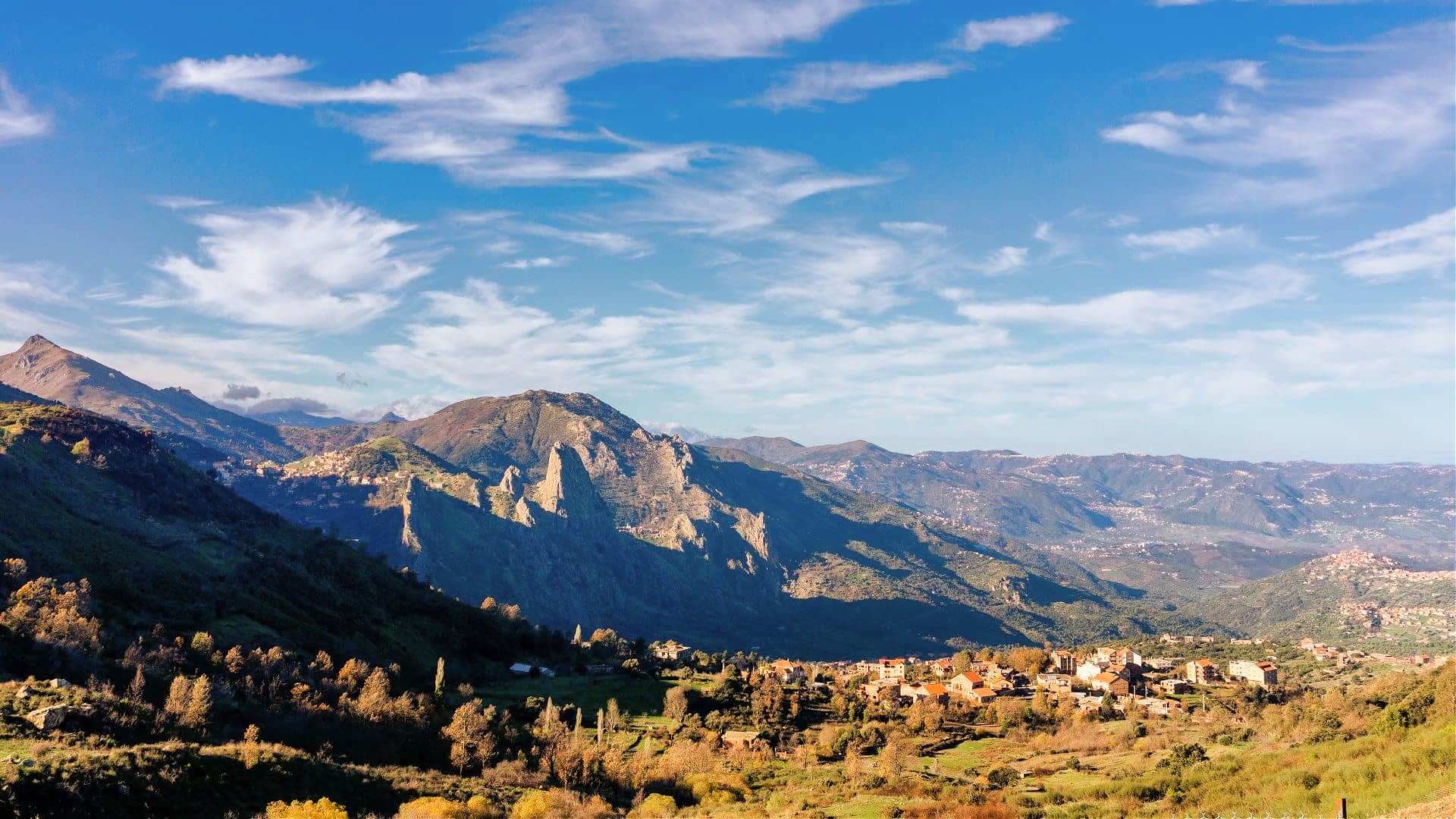
The PASA Program in Algeria has successfully concluded, establishing a network of resources and a sector-specific laboratory to support olive farmers and millers. The program aims to improve the olive sector in Algeria by providing knowledge, training, and resources to small farmers and millers, with hopes of increasing the country’s presence in the international olive oil market.
The PASA Program to develop a modern and sustainable olive farming and olive oil production sector in Algeria has concluded.
According to Paul Lompech, the program’s head of communication, PASA established a network of resources, providing small farmers and millers access to the latest knowledge and best practices for growing and milling olives over the past five years.
We have big hopes in the next five or ten years for the new industry to grow stronger… I think (Algeria) is positioned to become a significant player on the international olive oil market, with its own brand and quality production.
The European Union-backed project, which received funding from French and German entities, also established a sector-specific laboratory, published research on endemic Algerian olive varieties and prepared market research to aid farmers and millers in developing brands.
“The PASA Program has significantly contributed to laying the foundations for a substantial development of the olive sector,” Lompech told Olive Oil Times.
He highlighted the establishment of Algeria’s first olive oil-specific accredited laboratory, run by the Technical Institute of Arboriculture, Fruit and Vines (ITAFV), as a watershed moment for the project and the olive sector.
See Also:Tunisia Has a Plan to Boost Its Olive Oil Industry“Talks are ongoing with the International Olive Council, as this laboratory is soon destined to be officially recognized by the IOC,” Lompech said.
“It is a big step for us,” he added. “For instance, producers now have a reliable place in Algeria for olive oil analysis. So they will no longer need to send samples abroad, such as to France, as they did before.”
The laboratory also hosts dedicated training sessions about olive oil analysis. “On top of that, a network of six demonstrative pilot sites was established, two for each of the three provinces involved,” Lompech said.
“These groves allow all interested parties to directly observe good agricultural practices in the field, such as pruning techniques, irrigation or other improvements to boost the health and productivity of their groves,” he explained.
At the instructional sites, trained experts offer step-by-step guides to growers interested in adopting a new approach to farming and olive milling, including sustainability and environmental aspects.
While olive growing is in the DNA of most families residing in the north of the country, a modern scientific approach was needed for the sector to develop further.
“A better and broader knowledge about the local olive heritage is key to the sector’s future,” Lompech said.
ITAFV, with direct support from PASA, has also published the official catalog of the 36 Algerian olive cultivars that have been recognized and registered. Nineteen more are in the process of being registered.
The institute listed agricultural and commercial characteristics for each cultivar, including all morphological, phenological, molecular and organoleptic traits.
“This goes along with several research initiatives conducted by PASA, from consumer studies to water and environmental research, marketing and packaging on the Algerian market,” Lompech said.
“We focused on research to provide a basic bibliographic base for people to understand the olive ecosystem as a whole,” he added.
Other research was directed towards improving the capacity of olive oil mills and agricultural practices such as irrigation and pruning.
Dozens of books and other informative materials were published, listing all the most relevant aspects of olive growing, from sustainable practices to the health benefits of extra virgin olive oil.
As part of the buildup of such knowledge, PASA produced an advisory support system aimed at farmers and other interested parties. “As of today, we have 60 olive expert advisors in the field trained by the PASA advisory support system,” Lompech said.
“These are professionals who can spread the culture of quality production along with the knowledge needed to achieve such quality,” he added. “They can also train others, further spreading a new modern approach.”
The program focused on Béjaïa, Bouïra, and Tizi Ouzou, the three wilayas (provinces) of the Soummam Valley, where the earliest evidence of olive growing dates back more than two millennia.
“As a whole, in 2023, they organized more than 400 training events in the area involving more than 3,000 people, and that is just the beginning,” Lompech said.
“People trained in these courses in the territory become vectors of new knowledge, so the impact [of such activities] could be exponential,” he added.
The goal is for this knowledge to filter down to the many small olive growers that populate the region. By coming together, farmers can access the investments needed to trigger a new, more modern way of producing olive oil and the income such an approach can provide.
The program financed dozens of innovative olive development projects presented by local producers.
“A few cooperatives were created thanks to the program, and we can expect more to see the light in the future,” Lompech said.
“That was also part of our market-oriented research, aimed at having all actors fully understand the national regulations related to olive oil production as well as the dynamics of the international market, the expectations of consumers, and so forth,” he added.
According to Lompech, many areas of the olive sector still need to grow, and much remains to be done.
“Think of the exports,” he said. “Nowadays, Algerian olive oil is mostly sold to international buyers in bulk, and they rebrand it and then sell it to other markets.”
“That means there is space for some strong Algerian brands to enter the international market,” Lombech added. “We now have a first leading exporter group as the whole ecosystem around the olive world moves to another level of production and culture.”
He predicted that about half of local olive oil production – which the IOC estimates will reach 93,000 tons in the 2023/24 crop year, in line with the five-year average – will use the tools and adopt the best practices provided by the program.
“We have big hopes in the next five or ten years for the new industry to grow stronger,” Lompech said. “Today’s dynamics on the international market represent an opportunity, and the olive oil sector is now growing quickly, as the price is still increasing and demand stays high.”
“I think the country is positioned to become a significant player on the international olive oil market, with its own brand and quality production,” Lompech concluded.


